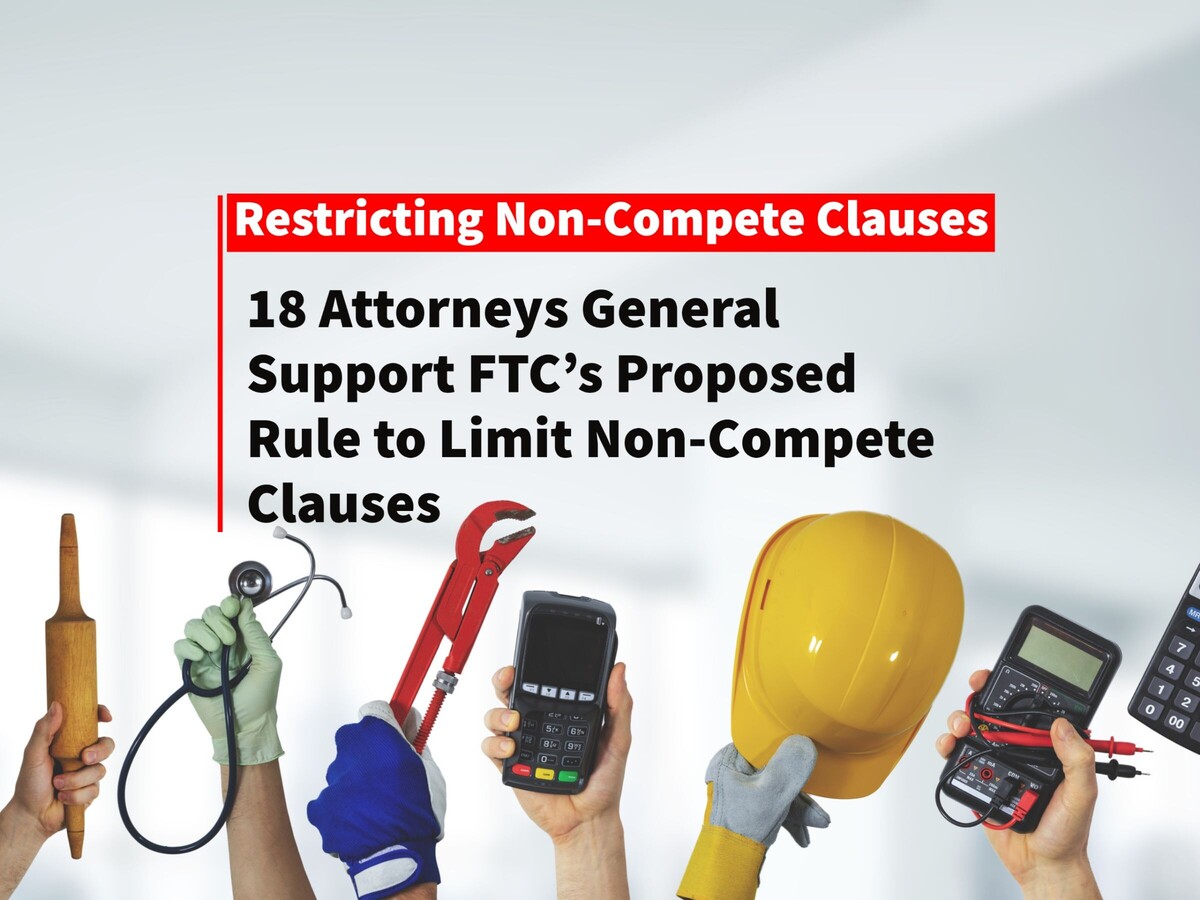Image


Attorney General Matthew J. Platkin announced today that New Jersey is joining forces with the District of Columbia and California to co-lead a multi-state letter supporting the Federal Trade Commission's (FTC) proposed rule to restrict non-compete clauses in employment contracts.
The proposed rule, which would apply nationally, aims to promote competition, increase employee mobility, and bolster workplace equity.
The letter, addressed to FTC Chair Lina Khan, was co-led by Attorney General Platkin, District of Columbia Attorney General Brian Schwalb, and California Attorney General Rob Bonta, with a total of 18 Attorneys General expressing their support for the proposed rule.
The Non-Compete Clause Rule, proposed by the FTC in January, seeks to prohibit employers from using non-compete clauses to restrict employees from working for or starting competing businesses within a specified time frame after leaving a job.
According to the proposed rule, non-compete clauses unfairly depress worker wages, perpetuate racial and gender disparities, and create legal obstacles for employees looking to advance their careers. The current state-by-state approach to non-compete agreements has led to confusion among workers and distorted labor markets that span multiple states.
Attorney General Platkin praised the FTC's efforts, stating that the proposed rule would promote fair competition in the marketplace by encouraging businesses to find better ways to retain talented workers than relying on non-compete clauses. The proposed rule would particularly benefit low and middle-wage workers, potentially leading to wage increases and improved job mobility.
Studies have shown that non-compete clauses disproportionately impact women and non-white workers, who experience earnings reductions twice as significant as those experienced by white male workers. The elimination of non-competes is expected to benefit the economy as a whole, as these clauses have been found to stifle entrepreneurship and start-up activity.
The multi-state letter highlights the healthcare industry as one sector that would particularly benefit from the proposed rule, as non-compete clauses are prevalent in this field and contribute to inflated prices and decreased wages.
The states also endorse the FTC's definition of "non-compete clause" and support the broad definition of "worker," while requesting the Commission clarify that the proposed rule does not override similar state-level laws offering equal or greater protections.
The Attorneys General of Colorado, Delaware, Illinois, Maine, Maryland, Massachusetts, Michigan, Minnesota, Nevada, New Mexico, New York, Oregon, Pennsylvania, Rhode Island, and Washington also joined the letter in support of the proposed rule.
The multi-state letter signifies a strong consensus among state officials regarding the need to reform non-compete clauses in employment contracts. By supporting the proposed rule, the Attorneys General are advocating for a more competitive and equitable labor market that benefits both employees and businesses.
As the FTC considers the proposed Non-Compete Clause Rule, it will take into account the support and concerns expressed by the 18 Attorneys General. If the rule is eventually adopted, it will mark a significant shift in the way non-compete clauses are addressed in the United States, fostering a more unified approach to labor market regulation.
However, it remains to be seen how the rule will be received by businesses and other stakeholders who may have differing opinions on the matter. Regardless, the multi-state letter demonstrates a growing momentum in the push for greater fairness and flexibility in the American workforce.